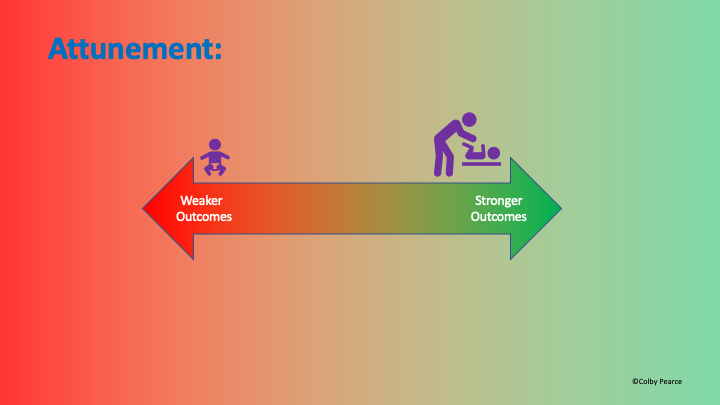
A: Attunement
Attunement refers to felt and/or projected emotion that is congruent with that of the developing child. Attunement involves tuning in to the infant’s experience and allowing oneself to experience congruent emotion. Attunement establishes a reciprocal connection from the infant that supports the caregiver’s capacity to regulate the infant’s emotion. As such, attunement provides a ‘safe place’ for the exploration of a range of emotions and a broad emotional repertoire, consideration of the experience of others, and regulation in consideration of the experience others.
In circumstances where the infant’s primary caregivers have their own challenges in the areas of mental health, substance misuse, domestic or family violence, and/or poor parenting knowledge, the infant’s experience of attunement is impaired. The consequences of this include a limited emotional repertoire, impaired capacity for self-regulation, and a perceived lack of empathy for others.
Interventions seeking to address these aspects of the presentation of the child who experienced grossly inconsistent and inadequate attunement during infancy need to focus on enriching opportunities for emotional connectedness and relationship enhancement. An obvious opportunity is through interactive play and shared activities where caregiver and child have a shared emotional experience. This can occur naturally, but also benefits from caregivers intentionally tuning in to the experience of the child, allowing shared emotion, regulating the child regularly to calm, and walking them through a range of emotional experience.
Click here to enter the next page in this module.
Click here to purchase a PDF Handbook for this module.
